Traditional Astrology
Introduction to Medieval, Renaissance and Early Modern European Astrology
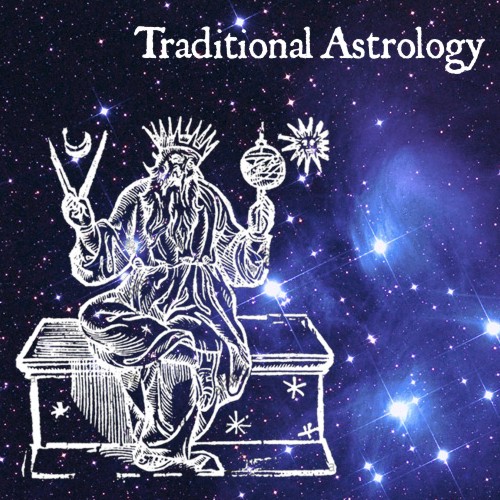

Western or European astrology originated in Babylonia and Chaldea around 2,000 B.C. The planets were equated to gods and celestial events observed for omens. Most cultures observe heavenly omens, but Babylonian religion was particularly astral based and by 1,500 B.C. had collected systematic observations of Venus and other planets.
The key invention was Zodiac around 600-400 B.C. which allowed for precise description of location of planets and complex system of delineation. This horoscopic astrology diffused to Greece and throughout the Hellenistic world and became part of the science and philosophy of the Roman Empire.
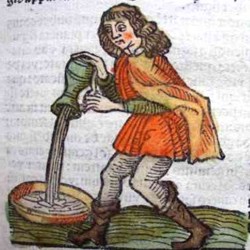
With the fall of the Roman Empire and the onset of the Dark Ages in the 6th and 7th centuries, astrology was preserved in Byzantium and the advanced Islamic civilization of the Middle East. This astrology, enriched by the addition of observations and techniques, some from the Vedic astrology of India, passed to medieval Europe in the 12th and 13th centuries. There it flourished until the Enlightenment and went of out fashion due to the new materialism and mechanistic philosophies introduced in the late 17th and early 18th centuries.
Over the 2,000 year span from the Greeks to the Renaissance astrology exhibited great continuity in technique and philosophy despite some significant changes. The phase of this astrology in Europe from 1200 to 1700 is referred to as traditional astrology while the first period, 1200 to 1500, is known as medieval astrology and the terminal period, 1500 to 1700, is known as Renaissance astrology. Here is more information on the History of Astrology in the Renaissance.
You can also learn about medieval and Renaissance astrologers like Thabit Ibn Qurra, Al-Biruni, William Lilly, Cornelius Agrippa, Marsilio Ficino, William Ramesey and Francis Barrett and authorities on astrological magic like Paracelsus, Albertus Magnus, Giordano Bruno and Johannes Trithemius and look at astrology texts like Guido Bonatti's 146 Aphorisms or the Liber Fructus, the 100 Aphorism Attributed to Ptolemy, and learn about the reputed founder of astrology, alchemy and magic Hermes Trismegistus.
The focus of traditional astrology was on outer events, rather than psychology (a science that did not come into existence until the 20th century). By using a myriad of techniques, traditional astrology was able to provide precise, accurate prediction of concrete events. Here is an example of the accuracy and precision possible with traditional astrology, the Disappearance of Chandra Levy.
From 1700 to 1900 astrology was practiced seriously by only a few isolated practitioners and much of the nuance and technique was lost. By 1900 with the renewed interest in the esoteric sciences reflected by such groups as the Theosophists and the magical order of the Golden Dawn, astrology came to be studied again.
In its newest incarnation, however, astrology came to be seen as a method of character analysis and psychological insight. The stars and planets provided a map of the psyche which proved very useful for self insight and counseling. Prediction, the raison d'etre of traditional astrology, was dismissed as either impossible, due to the considerable loss of technique or unethical.
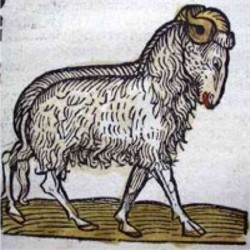
Modern psychological astrology introduced the use of the outer planets, Uranus, Neptune and Pluto, asteroids, additional types of aspects and a myriad of techniques using advanced computer software. Modern astrology is excellent for psychological insight, but cannot predict with the precise of traditional astrology. 18th centuries.
The public and even many astrologers are unaware that there is any difference between modern and traditional astrology. But even more than the significant difference in technique and methodology, what really distinguishes modern astrology from traditional astrology are their widely variant worldviews. Traditional astrology follows the traditional worldview, where not only does the spiritual exist, but it is primary over the material. Traditional Hermetic and Neo-platonic philosophy sees the entire Cosmos as One unified being connected by bonds of spiritual sympathy and influence and everywhere embued with pattern and meaning.
Moderns, either consciously or unconsciously either accept or are highly influenced by the modern atheistic/materialist worldview, when inevitably tends to nihilism. The modern worldview is that only matter and energy exist and thus the spiritual is non-existent. Events are random, except when caused by material or energetic causes or direct human intervention and existence is meaningless except for meaning humans choose to put on it which is subjective and conventional. Even those that state that they believe in the spiritual tend to see it operating in a materialist and mechanistic way, e.g. spiritual fields, beams or rays, or look to materialist and energetic causes to explain astrology. Here is a blog post on the Modern World View. The modern world view has a strong effect on how people approach astrology which we can see in a very practical way with regard to their choice of the Tropical, Sidereal or Constellational Zodiacs.
Traditional astrology is divided into four main categories:
Natal astrology, which examines and predicts events based on a birth chart.
Horary astrology, which answers specific questions by
looking at a horoscope for the time of the asking of the question.
Electional astrology, which picks astrologically
auspicious times to take action. Astrological
magic makes considerable use of electional astrology to create
Astrological talismans.
Mundane or geo-political astrology, which uses a variety of techniques to predict events on a
national scale or over long periods of history. Mundane astrology also includes
weather prediction.
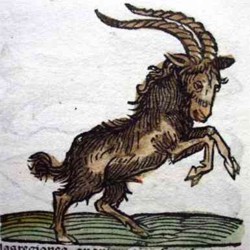
The Renaissance Astrology web site is the largest traditional astrology site, with information on a wide variety of topics as well as actual examples of horary, electional and astrological magic charts. This is a great place to start learning about traditional astrology! Check out our Youtube Videos which are a great introduction to traditional astrology and astrological magic.
If you are interested in reading about traditional astrology here is a booklist to get you started. You can also check out the complete list of books published by Renaissance Astrology Press. There are not many contemporary books written on traditional astrology, most were originally written in the Renaissance and Middle Ages:
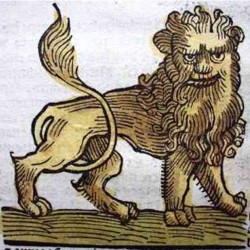
HORARY ASTROLOGY
There is no question that William Lilly's Christian Astrology written in 1647 is the best single source on horary astrology. It is available in a pdf facsimile of the original in the Renaissance Astrology CD Library or in paperback from Amazon. I recommend both Books 1 & 2 as well as Book 3 so you have the complete Christian Astrology.
In addition, Guido Bonatti's Book of Astronomy Horary Section translated by Ben Dykes, is also excellent. Bonatti, a medieval Italian astrologer, is a key source for traditional astrology.
My Horary Casebook is a very useful resource with over 40 actual horary questions, charts, analysis made before the results were known and the actual results. This is the only way to really test your skills and knowledge of horary, with real charts! This is also available on Amazon.
Finally John Frawley's Horary Textbook is an excellent contemporary book on traditional astrology. Worth reading!
ASTROLOGICAL MAGIC
The Complete Picatrix is the most important grimoire of astrological magic. Anyone interested in astrological magic should have a copy. Our translation is from the Latin and is clear and usable. It is available from the Renaissance Astrology website and from Amazon in both paperback and Kindle editions.
My Secrets of Planetary Magic is an excellent and relatively easy introduction to traditional astrological magic. Another excellent introductory book is my Mansions of the Moon book.
A classic text for astrological magic is Cornelius Agrippa's Three Books of Occult Philosophy. A hardcover version of the 17th century translation is available on Amazon from Llewellyn. Keep in mind, however, that the Llewellyn version edited by Donald Tyson, is not reliable when it comes to notes.
ELECTIONAL ASTROLOGY
The Renaissance Electional Astrology Compilation contains over 13 different traditional sources on electional astrology with every major 17th century English electional astrology text, including William Ramesey's Astrology Restored/Astrologia Restaurata.
Also Guido Bonatti's Book of Astronomy Electional Section translated by Ben Dykes, is very useful.
NATAL ASTROLOGY
The best 17th century English natal astrology text is John Gadbury's Doctrine of Nativities whcih is available in pdf on the Renaissance Astrology CD Library.
Also Guido Bonatti's Book of Astronomy Natal Section translated by Ben Dykes is excellent as well.
MUNDANE/GEO-POLITICAL ASTROLOGY
The best 17th century English mundane astrology text is William Ramesey's <Astrology Restored/Astrologia Restaurata which is available in pdf on the Renaissance Astrology CD Library.
Also Guido Bonatti's Book of Astronomy Mundane Section translated by Ben Dykes is excellent as well.
One of the problems of a magical practitioner in the early 21st century is getting caught between running aground on the Scylla (google it!) of fluffy bunny New Ageism or being whirled into the Charybdis of academic magical scholarship. It's very tempting to be "serious" and start paying lots of attention to academic sources, after all they are the high priests of our society and their imprimatur (google it!) is necessary for legitimacy and prestige.
Unfortunately, academic observers of magic are still required to reject its actual existence. This makes them very problematic sources of information when one is actually interested in doing magic. Hard to get practical tips from someone that insists the whole exercise is a pointless exercise in outdated superstition.
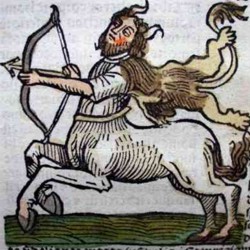
So, I've generally used academic sources very sparingly, in the very beginning of study, simply to get my historical bearings. I hadn't even bothered to read anything new coming out of academia in the past few years, so it was a pleasant surprise to run across two new books in the UPenn Magic in History series that I can actually recommend. Just keep in mind that these are academic texts, not intended to be practical and almost always coming from the atheistic/materialist worldview that denies the reality of magic.
The first is The Transformations of Magic: Illicit Learned Magic in the Later Middle Ages and Renaissance by Frank Klaassen. Klaassen even goes to so far as to say that in his opinion, at least as far as the actual practitioners were concerned, that magic worked. Though I don't think he'd go so far as to endorse the practicing of magic by those in the contemporary world. Klaassen is one of the leading lights of the Societas Magicae, which is extremely frosty about actual practitioners. Their membership form, for example, asks either for your academic affiliation or a listing of academic articles published.
YIn any case, I did find Transformation of Magic very interesting and can recommend it because it gives a great amount of information about the split between astrological and Solomonic magic. I had thought that this was a modern phenomenon, but in fact, while astrological magic texts, mostly of Arabic origin, were popular in the Middle Ages, by the time of the Renaissance, the Solomonic style, ala Greater Key of Solomon, Goetia, etc., were all the rage. Very, very interesting! So definitely worth getting a copy here are the Kindle version of Transformations of Magic and Paperback version of Transformations of Magic
II was then on a roll, and found another good new academic magic source, Magic in the Cloister: Pious Motives, Illicit Interests, and Occult Approaches to the Medieval Universe by Sophie Page. Here the focus is on the library of the Benedictine abbey of St. Augustine's in Canterbury, (yes England). Interestingly enough a significant portion of the monks had the time, interest and inclination to collect and presumably practice magic, alchemy and astrology. Very interesting summary of medieval and Renaissance magic and magical texts. Well worth perusing! Kindle version of Magic in the Cloister and Hardcover version of Magic in the Cloister
So let's just open the floodgates and look at the whole Magic in History series But I wouldn't buy it at the publisher, too expensive! Get Kindle or get used copies. Here's what I like the most of the rest of the series:
First is Forbidden Rites: A Necromancer's Manual of the Fifteenth Century by Richard Kieckhefer. Oh, boy, this one really got me in trouble! This is a critical edition of a medieval book of magic, what Kieckhefer calls the Munich handbook of necromancy. Unfortunately, or perhaps fortunately, while it includes the complete Latin, there is no complete English translation. Nevertheless, Kieckhefer gives a lots of information about the talismans, etc. I got in trouble with the one talisman I made out of this book, a black Mirror of Lilith as you can see following the link. So while I can definitely recommend reading the book, I can't really recommend using it! Paperback version of Forbidden Rites
The next book I can recommend is Unlocked Books: Manuscripts of Learned Magic in the Medieval Libraries of Central Europe by Benedek Lang. Again, by studying manuscripts and books in libraries, a great deal is revealed about the medieval and Renaissance practice of magic. Still, I'd love to have some actual critical editions of the magical texts discussed if not actual English translations. Paperback version of Unlocked Books
Two more books in the series that actually contain translations of magical texts are: Conjuring Spirits: Texts and Traditions of Medieval Ritual Magic by Claire Fanger. This contains a translation of Bokenham's "Book of the Angels, Rings, Characters and Images of the Planets" Paperback version of Conjuring Spirits
Finally Invoking Angels: Theurgic Ideas and Practices, Thirteenth to Sixteenth Centuries by Claire Fanger This contains an English translation of Antonio Da Montulmo's "Book of Intelligences" which is very unusual, giving instructions for invoking the spirits of the Zodiacal signs and intelligences of the planets. Paperback version of Invoking Angels. So you can lose yourself for awhile in a wealth of academic material and even get some actual astrological magic or malefic magical texts!
The Hermetic Arts are astrology, magic and alchemy. I've never practiced alchemy, but if you are interested make sure you study traditional laboratory alchemy. As I said, I'm not an expert but here are some interesting contemporary books on traditional alchemy that are good as an introduction. All of these are contemporary texts, but still traditional in their approach. Principe is particularly interesting as he is a chemist!
Junious - Practical Handbook of Plant Alchemy
Bartlett- Real Alchemy
Principe- Secrets of Alchemy
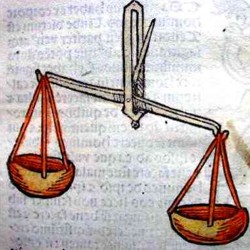
The entire Renaissance Astrology website is devoted to the remaining two Hermetic arts of astrology and magic. Studying and practicing traditional astrology and magic is the best and really only method to truly master authentic Hermeticism. Here are some useful texts on traditional Hermeticism to dive into if you are still a seeker in the reading stage:
Fowden-Egyptian Hermes
Excellent introduction to history and philosophy of ancient Hermeticism
Ebeling-Secret History of Hermes Trismegistus Good introduction to history of Hermeticism throughout medieval, Renaissance and into modern period.
Copenhaver-Hermetica
Excellent translation of Corpus Hermeticum, key philosophical Hermetic text.
Marsilio Ficino- Three Books on Life Hard to obtain, but worth it as highest expression of Renaissance Hermeticism.
One of the most useful ways to get a feel for traditional astrology is to get an astrological analysis or reading. When I do readings I include, the chart details, a complete listing of the astrological factors I considered as well as an analysis so you can see how I do my chart delineations. Definitely consider getting a horary, electional or natal reading so you can see how traditional astrology actually works in action! Please Contact me if you have any questions about getting a reading.
The best way to learn traditional astrology, however, is to take a course. Here is a complete listing and full information about the 11 different Renaissance Astrology & Astrological Magic Courses. It is impossible to achieve mastery just reading books, instruction with actual charts and a real teacher is really necessary.
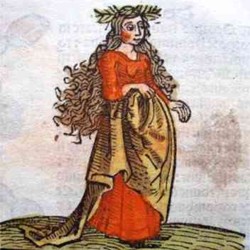
I have a number of mini-courses, designed to teach a small, self contained area you can immediately put to use and give you an introduction to traditional astrology including the Planetary Magic Mini-Course, Mansions of the Moon Mini-Course, Decan/Face Mini-Course, Geomancy Mini-Course, Green Magic Mini-Course and Astrology for Rootworkers Mini-Course.
The Renaissance Astrology full courses teach the full range of each area and include:
the
Horary Astrology Course
the
Astrological Magic Course
the
Natal Astrology Course
and the
Electional Astrology Course
All of these courses are available on CD which includes paperback course books or via download with the course books purchased separately.
Oo knowledge of astrology or magic is necessary. Each full course has multiple lessons and homework. There are no deadlines for lessons or time limits for course completion and students work at their own pace. All full courses are personally taught by Christopher Warnock, the foremost contemporary traditional astrological magician and a leading traditional astrologer. Full course students can contact Christopher via phone or e-mail for any questions they may have on the current lesson. A certificate of completion is awarded to course graduates. Please Contact me if you have any questions concerning course enrollment.